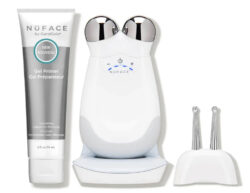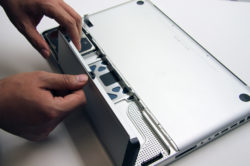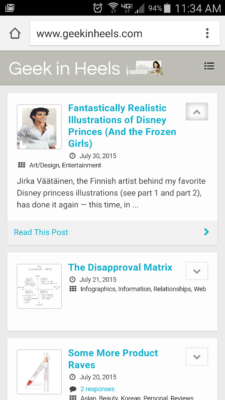The Consumerist is currently deep into the 2008 Worst Company in America contest, with 16 companies left in the round 3 bracket.
They just posted the third installment of its “Sweet 16” matchup: Best Buy vs Diebold.
Personally, I think Diebold is worse than Best Buy. Not only due to the voting machine fiasco, but to the fact that I’ve dealt with them many times in my prior job and I’ve found that the company couldn’t be more poorly run.
That being said, Best Buy is pretty terrible too. I should know, because I worked there.
My tenure at Best Buy was short, from 2000-2001, and things may have changed since then. (But from reading comments on sites such as the Consumerist, things do not seem much different.)
I was taking a break from school and my mother threw me out on my lazy ass to go get a job. The local mall had just opened a Best Buy few months prior. I loved technology, and I knew quite a few things, even back then. I wanted to learn more and share my knowledge with others…while getting employee discounts, of course. I applied, and I got in.
Best Buy offered paid training. My eyes shone like stars as I imagined all the cool things I would learn about the latest gadgets and technology. I would be given insider info, and all the facts needed to recommend the best product for each customer.
Pshah, and monkeys might fly out of my butt.
The first half of the training period consisted of videos and mini quizzes. History of the company. Sexual harassment policy. Safety rules. Employee benefits.
The latter half of consisted solely of sales techniques and what we should/shouldn’t be pushing.
Not one word on the products.
We were then thrown to the wolves and told to sell.
Salary was not commission-based. We were told to emphasize this fact as to gain the customer’s trust. “Tell them that you won’t make a dime from the product you’re recommending. Tell them that you’re only recommending this product based on their needs and preferences. Just sell something.”
The funny thing is, most large chain stores like Best Buy do not make much money off expensive consumer products. For example, the profit margin on a washer-dryer combo may be as low as 2%. The real money (and profits) come from the extended service plans and accessories, which may be marked up as much as 800%.
Thus it came to no surprise that we would constantly be told to quickly recommend a product, then try our very best to push the accessories and service plans on the customer.
Every three months, a manager would give me an evaluation. “Pretend I’m a customer looking to buy a new stereo system,” he would say. I would then start my spiel while he pretended to play dumb. At the end of the mock sale, he would tell me what I did well and where I needed improvement.
Once again, the evaluation was based solely on my sales technique, not my knowledge of the product.
In fact, most of the employees knew jackshit about our products. If someone was to come into a Best Buy and take away all the yellow labels (with the price and specs) at the bottom of the shelves, I’m pretty certain that the entire store would be filled with blue polo-wearing monkeys scratching their heads in confusion.
However, I have to admit that the employee discounts were pretty sweet. I ended up spending a large portion of my paycheck on new gadgets, CDs (remember those?), and DVDs. And although we weren’t supposed to, I hooked up my friends and family with large discounts on various items.
When the Game Boy Advance was released, moms and full-grown geeks flocked into the store, demanding the latest “it” handheld gaming system. I would answer every phone call with, “Thanks for calling Best Buy. We currently do not have any Game Boy Advance in stock. How can I help you?” People begged me to hide an extra unit for them when the next shipment arrived. I even got yelled at several times.
However, the fervor of the Game Boy Advance was nothing compared to the PS2. I distinctly remember having the 6am-10am shift on launch day. As I drove into the parking lot at 5:45 on that cold, dreary October day, I cringed to see the large crowd that had formed at the front door. I felt like a celebrity as I walked to the store. People shouted, yelled, and even grabbed. They begged me to hold one for them. Some even offered money (I should’ve taken it!). When the store finally opened its doors at 10am they stampeded into the building and 3 minutes later, all the PS2s were gone.
The begging and yelling would ensue for the next few months, and it grew exponentially as Christmas grew near.
And once again, Best Buy didn’t teach its employees a single thing about the Game Boy Advance or the PS2 – the two most popular items at the time. I read up on the gaming systems in my spare time just so I wouldn’t feel like a complete idiot when talking to the customers.
However, they did teach us all about the cool and fun accessories accompanying each system. Oh, and we can’t forgot the extended warranties.
It is precisely for these reasons that I hardly ever ask for help when I walk into tech stores. I always do my research beforehand, and sometimes I even “play” with the employees to test their knowledge. And it’s always amusing to see the employees’ reactions when I ask them a question they can’t answer, and/or I refute their statements with cold, hard facts.
This is the way of the world of retail, and no store is immune. Radio Shack, Circuit City, Apple…yes, even Apple. I’ve had quite a few chuckles overhearing the so-called-specialists describing the products to potential customers.
But I have to admit that Best Buy trumps them all.
Please note the dates of my employment at Best Buy — I worked there over a decade ago! Things may certainly have changed since then, and I have no idea how things work there now, or if the company as a whole or the store that I worked at is running any differently.



